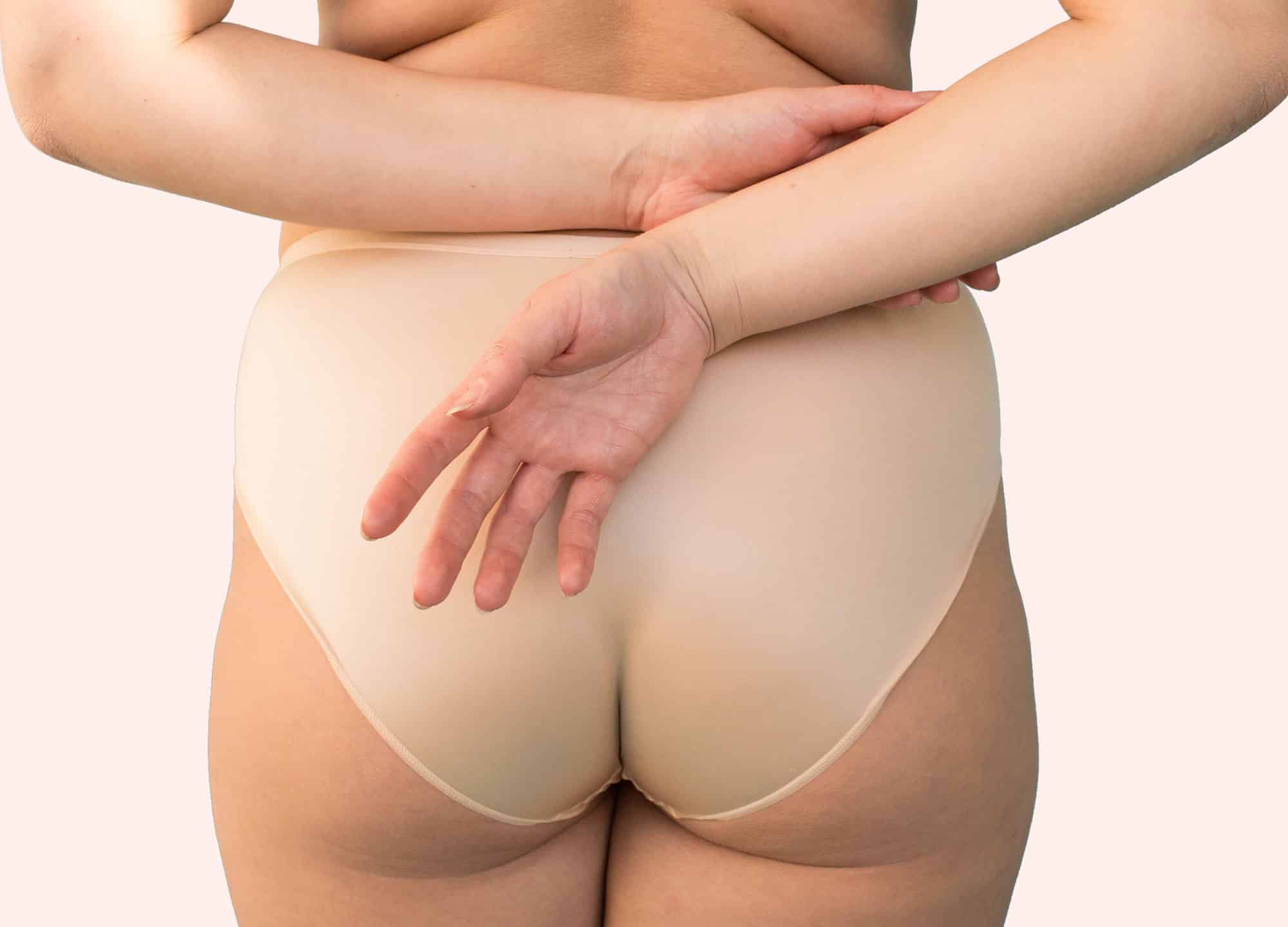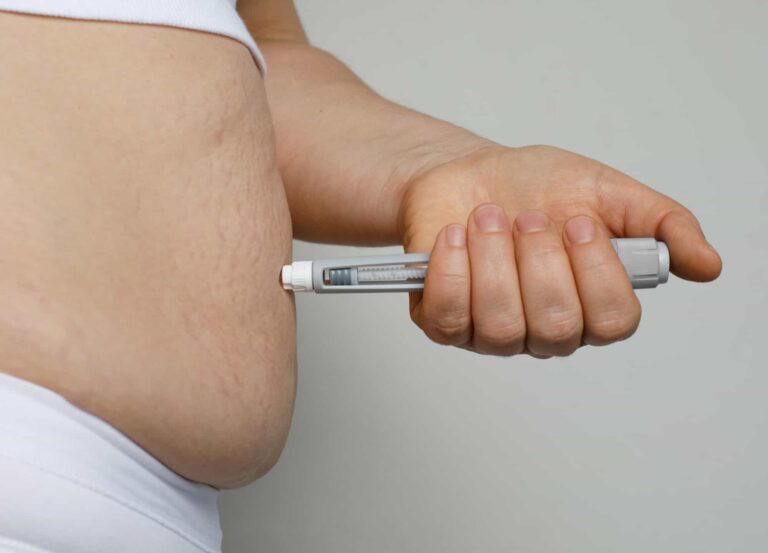Wanting a surgical procedure and being able to pay for it are only two of the many qualifications needed in order for a reputable doctor to schedule you in for surgery. And liposuction, though it seems like a quick, simple, decades-old fix for excess fat deposits, isn’t a suitable solution for a surprising number of people. To determine whether it’s right for you, doctors have to take into account your expectations, skin, visceral fat, medications, and more. Here are the factors that make you a less-than-ideal liposuction candidate.
1. You fall outside a certain BMI range.
Even though health professionals agree that body mass index (BMI) is far from the most accurate way to assess a person’s weight category, since it doesn’t differentiate between body fat and muscle mass, it still plays a role in a doctor’s decision to operate. According to Dr. Douglas Taranow, a board-certified plastic surgeon in New York City, “Most surgeons limit their cases to a BMI of 30 or even up to 35.”
“Complication risks in many types of surgery, including liposuction, increase with increasing BMI,” says Dr. Thomas Fiala, a board-certified plastic surgeon in Altamonte Springs, Florida. “Published reports recommend that the optimal patients have a BMI less than 30 and few other medical issues, if any. Morbidly obese patients with a BMI greater than 40, according to one study, had a complication rate of 6.3% compared to just 1.8% for patients of normal weight, which is statistically significant.”
But obesity isn’t the only issue; being too thin can also make you a poor liposuction candidate. “Generally, we don’t want to liposuction areas of the body that have a pinch thickness of less than about two centimeters or so, as there is a much higher risk of leaving irregularities and indentations, even with small cannulas,” says Dr. Fiala.
2. You want more fat removed than is allowed.
Liposuction is for body contouring, not weight loss—and there’s good reason for limitations on the amount of fat cells surgeons can remove. “As liposuction technology evolved over the past 40 years, from the traditional cannula methods to powered lipo, laser-assisted lipo, and Vaser, just to name a few alternatives, it became easier for surgeons to remove more and more areas of fat. Surgeons would take on more difficult, larger cases, and patients would beg to have more areas treated at once,” explains Dr. Fiala. “Liposuction went from a localized treatment of a small area of fat in a fit, healthy patient to a different level of complexity: major body reshaping in patients of a variety of sizes. That’s when problems started happening.”
When fat is removed, so are blood, fluid, and electrolytes, and that loss can lead to dangerously low blood pressure and hypovolemic shock, says Dr. Fiala. To protect patients from “shock, unneeded hospitalization, blood transfusion, and death,” plastic surgery societies put in place a 5000cc (5L) limit for liposuction many years ago. “This is the usual cutoff number for defining ‘large volume’ liposuction procedures, which is a more complex undertaking and should come with an overnight observation period,” says Dr. Fiala.
In some states—including Florida— where the fat-extraction limit was reduced to 4000cc in 2013, after a high number of deaths and complications, the limit may be lower. And while other countries may have higher limits (or even none at all), that’s a dangerous reason to travel for cosmetic surgery. “These recommendations are not arbitrary,” says Dr. Donovan Rosas, a board-certified plastic surgeon in Celebration, Florida. “They are ultimately based upon studies of postoperative liposuction surgery patients and the subsequent fluid shifts that occur after large volume procedures … It is never good to pursue a surgeon who will be the most cavalier.”
Bottom line: Liposuction can be great for removing stubborn pockets of fat, but don’t count on it to get you to your ideal weight.
Related: 7 Plastic Surgeons Reveal the Biggest Misconceptions Patients Have About Liposuction
3. You don’t pass medical clearance.
Your doctor should require proof that you had a physical exam, for surgery clearance. And as disappointing as it may be if they refuse to operate after seeing the results, it is only in your best interest. “Most surgeons use the grading system of the American Society of Anesthesiologists,” explains Dr. Fiala. “In our outpatient surgery center, we operate only on people in class I, perfectly healthy, or class II, mild systemic issues. Class II patient examples would be someone who smokes but is otherwise in good health or someone with high blood pressure that is controlled with medication. But someone who has chest pain with exertion, is a poorly controlled diabetic, has bad asthma, had a recent stroke or TIA, or is on blood-thinning medication—these are all examples of people who wouldn’t be suitable for surgery at our center, as they are at much higher risk.”
In terms of smoking, it all counts—cigarettes, vaping, and marijuana—and the doctors say it puts you at a much higher risk of complications, including skin loss, infection, vasoconstriction (spasm of the blood vessels) and anesthesia-related issues. It’s not an automatic disqualifier for surgery, but ideally, you should quit well in advance of any invasive cosmetic procedures that require an anesthetic.
4. You have cellulite, poor skin elasticity, or a history of keloid scarring.
Unfortunately, extracting stubborn fat on those with moderate to significant amounts of cellulite or loose skin will only make the area look “worse and deflated,” says Dr. Fiala. Ideal candidates have elastic skin, because if the skin doesn’t have enough elasticity over the deposit of fat, the result won’t be smooth, so it’s important to set realistic expectations. His medical advice: “Don’t get liposuction if you have these problems, unless you are willing to accept those trade-offs.”
Someone with a history of keloid scars may not be a good candidate for the body contouring procedure, says Dr. Taranow. Keloids are raised scars that occur after the skin has healed from an injury, and many people who develop them have a genetic predisposition. According to one study of 600 liposuction patients, 1.3% developed keloids. You should talk to your doctor if you’re concerned about scarring and make sure you’re comfortable with where the incision sites are.











